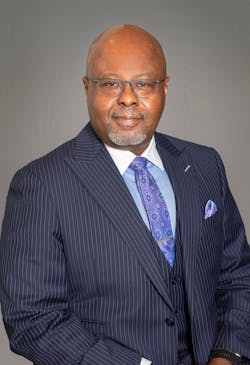Louisiana-based Ochsner Health has become the most recent large health system in the United States to take the Global Health Equity Network (GHEN) Zero Health Gaps Pledge. The initiative seeks to mobilize executive leadership of organizations across the world to prioritize health equity action.
The announcement was made to align with April 7, recognized as World Health Day, an initiative of the World Health Organization (WHO). WHO aims to “promote health, keep the world safe and serve the vulnerable – so everyone, everywhere can attain the highest level of health and well-being.”
Achieving Zero Health Gaps would mean that all individuals have the fair and just opportunity to fulfill their human potential in all aspects of health and well-being. By taking this pledge, Ochsner is declaring its commitment to meaningful action and collaboration toward health equity.
New Orleans-based Ochnser operates 47 hospitals and more than 370 health and urgent care centers across Louisiana, Mississippi, Alabama and the Gulf South. “At Ochsner, we serve, heal, lead, educate and innovate to inspire healthier lives and stronger communities,” said Corwin Harper, chief growth officer at Ochsner Health, in a statement. “We agree that there is a need for greater affordability, accessibility and equity to advance health outcomes, which is why we are the first healthcare organization in the Southeast United States to sign the Global Health Equity Network’s Zero Health Gaps Pledge.”
Other large U.S. health systems to have signed the pledge include Johns Hopkins Health System, Kaiser Permanente, Boston Medical Center, Providence Health & Services and Hackensack Meridian Health.
According to the World Economic Forum, the pledge is a direct response to the persistent and growing global health disparities between and within countries. For example, the average life expectancy for people in high-income countries is 78, compared with just 64 for those in low-income countries. In recent years, the global climate and health crises, including the COVID-19 pandemic, have highlighted the seriousness of these inequities and the dire consequences of not addressing them. The Zero Health Gaps Pledge is a plan for action that works toward correcting these issues.
Ochsner said its support for Zero Health Gaps is directly in line with the system’s vision of achieving a Healthy State by 2030, a plan announced in 2020 to realize a healthier Louisiana. The mission of Healthy State is to eliminate barriers to healthcare, bring resources to the underserved, urban and rural communities; collaborate with local and state leaders as well as public and private sector partners to research and better understand health disparities; utilize technology and innovation to improve outcomes and invest in Louisiana’s next generation of healthcare providers and frontline staff. Working together, Ochsner and its Healthy State partners are seeking to tackle the leading causes of poor health and create healthier communities for all Louisianans.
“Ochsner’s signing of the Health Equity Network Zero Health Pledge demonstrates our commitment to deepen our understanding of health inequities, train the next generation of physicians, and improve health and wellness for all,” said Leonardo Seoane, M.D., executive vice president and chief academic officer for Ochsner Health, in a statement. “Through our Healthy State initiative to realize a healthier Louisiana, we are committed to viewing healthcare and wellness through a lens of equity. We understand that we can’t have a Healthy State unless we have an equitable state. With our motto of ‘global health is local health,’ the University of Queensland-Ochsner Clinical School has trained physicians with a unique perspective, better preparing the next generation to apply lessons learned locally and face challenges of the global health gap.”


